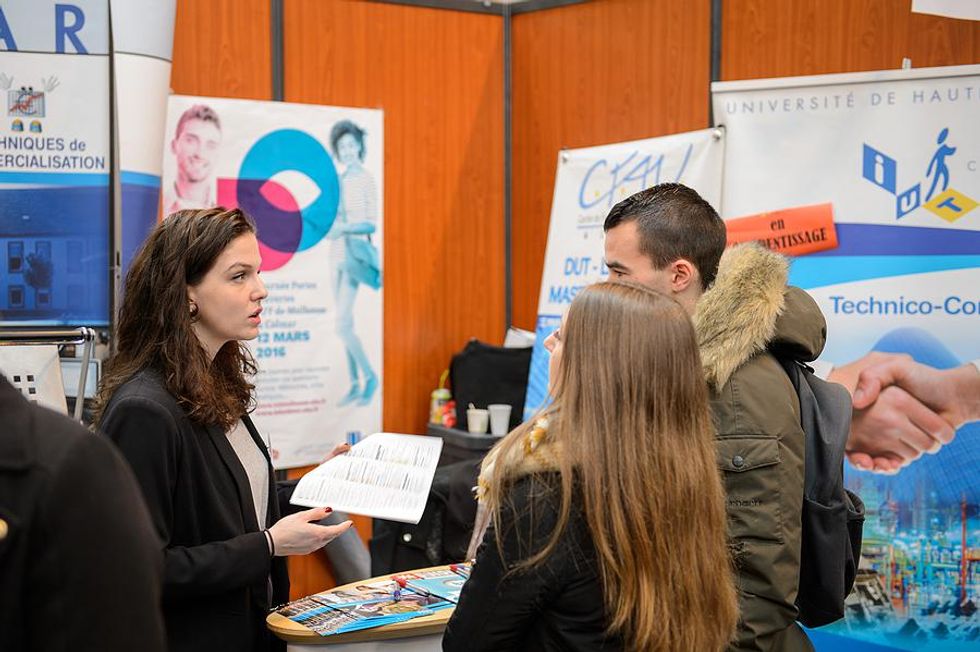Most job fairs run between January and May. When spring rolls around, things usually ramp up because most employers want job openings filled before summer kicks off. If you are among the job seekers attending job fairs, then take down these tips to prepare for it and make the most of your time there.
Many employers have a presence at job fairs to increase brand awareness, but also to save time in the screening process. Job fairs offer an opportunity for employers to conduct initial screenings of potential candidates on the spot. Due to COVID-19, virtual job fairs have become more popular and allow employers and job seekers to meet safely, going around geographical barriers.
Employers have an idea of what they are looking for in a candidate for each job opening, so anyone who appears to make the cut can be interviewed to advance the process along right then and there.
Job seekers who come prepared will strike up opportunities quickly, so here are five things you must do before attending a job fair.
1. Research Ahead Of Time

Bigstock
There can be hundreds of companies to talk to at each job fair, but that doesn't mean you'll have the time to reach out to all of them. Research ahead of time which ones you want to approach so you make the most of your time there. (You should always have your interview bucket list ready—a list of the companies you would love to work for someday!)
When you know your targets, you can also start to customize your materials. It'll help to look at the company's website so you see what job openings they have and the requirements/job descriptions for each position.
This information can help you tailor your resume and what you communicate when you meet with the individuals at the job fair. It'll also help you write your disruptive cover letter when you formally submit your job application.
2. Plan To Approach The Employer (Even If They Aren't Recruiting For The Job You Want!)

Bigstock
Job fairs are great for networking—it's not simply about dropping off your resume. You want to start conversations with the right contacts.
If there is an employer you desire to work for, but they're not recruiting for the job you want, it's still important to go over and talk to them. You never know when the position may suddenly open up.
The contacts there may also direct you to information in regards to who's leading the department you want to work in so that you can follow up with that individual directly. It's all about connections!
The key to connecting with others is to engage in conversation. Ask insightful questions! Be someone they will remember at the end of the day or use it as an opportunity to open the door to more conversation.
3. Have Your Elevator Pitch Ready
Employers are looking to hear what you can do for them, so come prepared with a quick pitch on your skills and experience, as well as how it can help solve their problems.
Your elevator pitch is essentially your personal branding statement. It's important to know what you bring to the table as a business-of-one. If you can clearly explain how you'll add value to the company at the job fair, you'll stand out in a sea of other potential job candidates.
4. Dress Like You're Going For A Job Interview
 Bigstock
BigstockOn-the-spot interviews happen at job fairs, so dress the part and be ready with copies of your resume in hand. As you introduce yourself, be mindful of your body language, including your handshake, eye contact, facial expressions, and voice.
Employers take notice of job candidates who smile and exhibit enthusiasm. They want to see a candidate with a strong desire to work with them, not someone who's simply swinging by randomly. Some may also screen your interest level by asking common interview questions like "What do you know about us?" and "Why do you want to work for us?" So, be prepared!
5. Plan To Follow Up
 Bigstock
BigstockLike a job interview, you should plan to send a follow-up note to the contacts you meet. It's a chance to help keep you top of mind and it gives you an opportunity to reiterate why you have what they are looking for. You should also send a connection request on LinkedIn for the same reasons.
Before ending each conversation, be sure to collect business cards from the people you speak with and take good notes so you know how to best personalize the follow-up note.
Approached the right way, job fairs can open many conversations and doors to job opportunities. If you do these five things, you'll be well-prepared for any job fair—and you'll definitely stand out from the competition!
Need more help with your job search?
Become a member to learn how to land a job and UNLEASH your true potential to get what you want from work!
This article was originally published at an earlier date.




